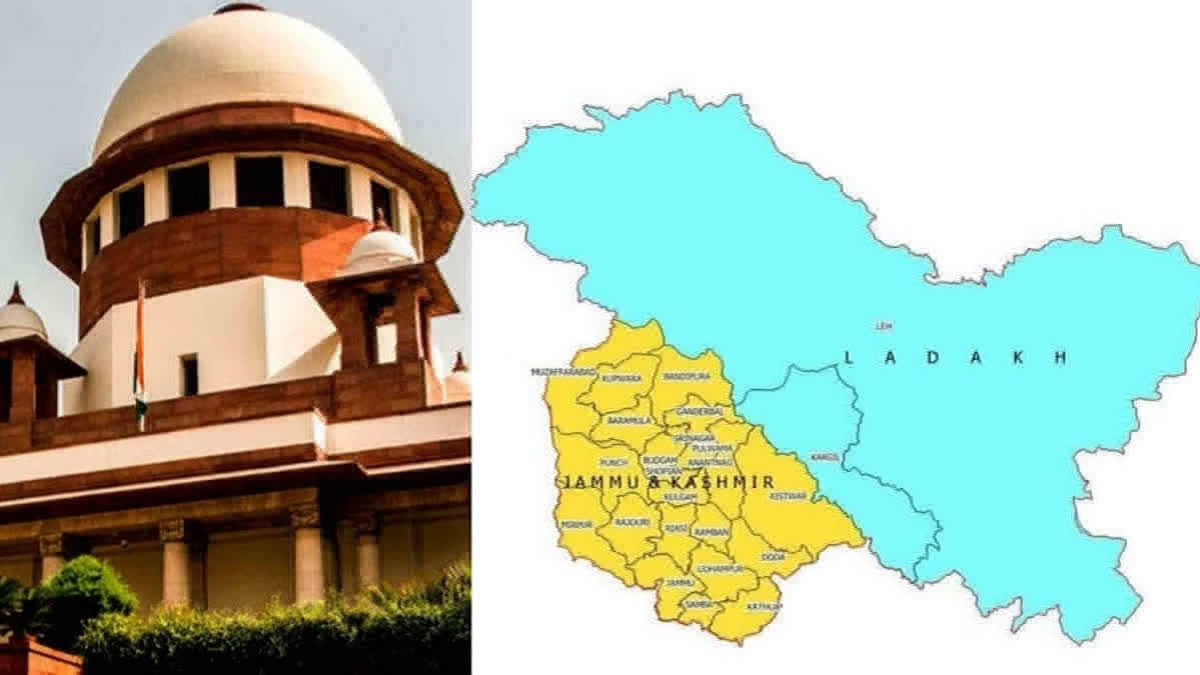New Delhi: The Supreme Court on Tuesday reserved its judgment on a batch of pleas challenging the abrogation of Article 370 which bestowed special status on the erstwhile state of Jammu and Kashmir.
A five-judge bench headed by Chief Justice of India D Y Chandrachud and comprising Justices S K Kaul, Sanjiv Khanna, B R Gavai, and Surya Kant, heard the submissions in the matter for 16 days.
A battery of senior advocates -- Kapil Sibal, Rajeev Dhavan, Gopal Subramanium, Dushyant Dave, Zafar Shah, Gopal Sankaranarayanan -- represented the petitioners before the apex court. The central government was represented by Attorney General R Venkataramani and Solicitor General Tushar Mehta. Counsels representing several intervenors also submitted their arguments in the matter before the court.
Dhavan, representing Sajjad Lone-led J&K People’s Conference, had contended that India is historically, legally, and constitutionally barred from breaking its promise, which finds concurrent reflections in the Constitutions of India and J&K, to give internal sovereignty to J&K after signing of Instrument of Accession in 1947. It was argued that unlike other princely states, J&K did not sign the merger agreement followed by the signing of the Instrument of Accession.
On August 2, the apex court began hearing the arguments from the petitioners’ side. Senior advocate Kapil Sibal, representing Mohd. Akbar Lone, opened the submission for the petitioners. Sibal said that between the Centre and the state, there was this understanding that constituent assembly will determine the future course of action as to whether Article 370 should be abrogated or not. He stressed that the people of J&K are with India but there is a special relationship which is engrafted in Article 370.
On Tuesday, the petitioners' side concluded the rejoinder argument after which the top court reserved its judgment in the matter.



